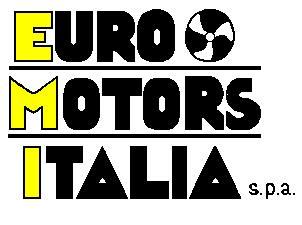Главный офис
в центре Европы
Гарантия
до 24 мес
до 24 мес
Лучшие
цены
цены
Экономия
от 15 до 55%
от 15 до 55%
Доставка
по России
по России
Все грузы
застрахованы
застрахованы
Бесплатная
доставка
доставка

Alfa Laval FEUX
Категория - Сепараторы дисковые и центробежные
Официальный сайт Alfa Laval (Швеция) :
www.alfalaval.com
Узнать цену
В нашей компании вы можете выбрать и купить Alfa Laval FEUX, а также другие запчасти от
компании Alfa Laval с доставкой по всей России, в том числе в ваш город : Дублин. Для запроса цен, сроков поставки
и других характеристик продукции Alfa Laval, пожалуйста, заполните форму обратной связи или пришлите описание необходимых Вам наименований
на электронный адрес info@famaga.ru
Описание
Продукция, изготовленная шведской Alfa Laval компанией, подходит для использования в пищевой, химической, фармацевтической, горнообрабатывающей и нефтяной промышленности.Преимуществом товара является длительный срок службы без необходимости осуществления регулярного обслуживания, а также его первоклассное качество и надежность. The Alfa Laval FEUX separator incorporates a unique combination of design features to ensure optimum separation and concentration efficiency in industrial fermentation applications. The FEUX separators take advantage of the fact that the slurry of concentrated solids is pseudo-plastic and flows easily in the bowl against the centrifugal force. This means that the recovered solids can be obtained with a low demand on energy in a closed system under pressure. Therefore, the hygienic conditions are very good, further improved by a full-speed CIP procedure. Unique Vortex nozzle design Like the BTUX and MBUX separator models, the FEUX separator bowl is equipped with Alfa Laval?s unique vortex nozzles, which offers performance unmatched by conventional nozzle centrifuges. With the self regulating vortex nozzles the concentration of discharged solids phase can be kept at a high and even level irrespective of fluctuations in the feed flow or feed concentration. The centrifuge can thus be operated closer to the clogging point without increasing the risk of clogging. The FEUX separator is designed for automatic ejection of washed-out solids during the cleaning cycle, which makes it particularly suitable for process lines equipped with automated cleaning-in-place (CIP). A complete range The FEUX is available in different sizes covering a wide range of process demands, from medium up to large scale production. Benefits- Self-regulating vortex nozzles for optimal concentrate dryness and minimum clogging risk
- Hygienic design
Пригласить на тендер
Наш менеджер свяжется с вами в ближайшее время.
Запрос отправлен
Запрос отправлен
Письмо не отправилось
Письмо не отправилось
Оставьте заявку
Мы свяжемся с вами и ответим на любой возникший вопрос.
Запрос отправлен
Запрос отправлен
Письмо не отправилось
Письмо не отправилось
Заказать звонок
Мы ответим на любые вопросы и поможем оформить заказ
Спасибо за вашу заявку!
А пока мы обрабатываем ваш запрос, вы можете найти другие необходимые вам позиции - ведь в нашем каталоге более 10 000 брендов!
Заказывая у нас сразу несколько позиций вы существенно экономите на доставке!
Каталог производителей
Искать

Что-то пошло не так
Кажется, что-то пошло не так. Попробуйте повторить попытку ещё раз позже.






















